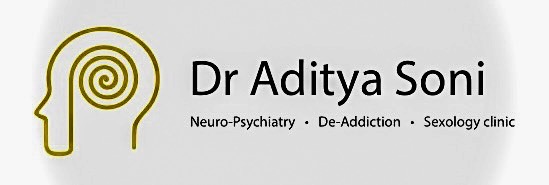What are the signs of Depression ?
- Home
- /
- Blog-6

20
Mar
What are the signs of Depression ?
Depression is more than just feeling sad or having a bad day. It's a serious mental health condition that affects how a person thinks, feels, and functions on a daily basis. Yet, because its symptoms can vary widely — and sometimes appear invisible — depression often goes unrecognized or misunderstood.
Recognizing the signs is the first step toward understanding, support, and healing.
1. Persistent Sadness or Emptiness
One of the most common symptoms of depression is a deep, lingering sadness. But for many, it’s not even sadness — it’s a numbness, a sense of emotional emptiness or hopelessness that doesn’t seem to go away.
If you or someone you know has felt this way for weeks or months, it could be more than just a passing mood.
2. Loss of Interest or Pleasure
Things that used to bring joy — hobbies, music, social activities, even food — may suddenly feel meaningless. This lack of interest, known as anhedonia, is a hallmark symptom of depression and one that significantly impacts quality of life.
3. Fatigue and Low Energy
Depression often drains a person’s energy. Getting out of bed can feel like a monumental task. Even simple chores or conversations might feel exhausting, no matter how much sleep someone gets.
4. Sleep Changes
Sleep and depression are closely connected. Some people may experience insomnia — difficulty falling or staying asleep. Others may sleep much more than usual and still feel tired. Either extreme can be a warning sign.
5. Appetite and Weight Changes
Depression can lead to noticeable changes in eating habits. For some, it causes a loss of appetite and weight loss; for others, it triggers emotional eating or cravings, resulting in weight gain.
6. Difficulty Concentrating
Many people with depression report "brain fog" — trouble focusing, making decisions, or remembering things. It can interfere with work, school, or daily responsibilities.
7. Feelings of Worthlessness or Guilt
A harsh inner critic often accompanies depression. People may feel like a burden, blame themselves for things outside their control, or constantly feel like they’re not good enough — even when those beliefs are untrue.
8. Irritability or Restlessness
While depression is often associated with sadness, it can also show up as irritability, frustration, or even anger — especially in men and teenagers. Restlessness, fidgeting, or a short temper may also be signs.
9. Withdrawal from Others
Isolation is both a symptom and a consequence of depression. People may pull away from family, friends, or co-workers, not because they don’t care — but because it feels too overwhelming to connect.
10. Thoughts of Death or Suicide
In severe cases, depression can lead to thoughts of death or suicide. These thoughts may be passive (e.g., “I wish I didn’t wake up tomorrow”) or more active. If you or someone you know is experiencing suicidal thoughts, it’s critical to seek help immediately. Reach out to a crisis line, trusted individual, or mental health professional.
Depression Looks Different for Everyone
Not everyone experiences all these symptoms, and they can vary by age, gender, and culture. Some people may function well on the outside but struggle immensely inside — this is sometimes called “high-functioning depression.”
The key takeaway: if something feels off and it’s lasting more than two weeks, it’s worth paying attention to.
